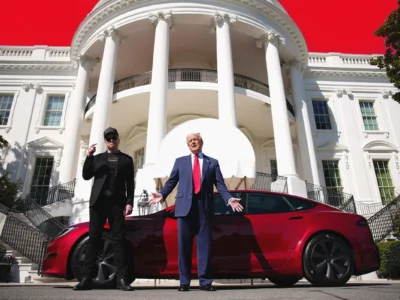Yes on Proposition 21
 Proposition 21 on next month’s California ballot seems like a pretty easy call: it would raise the state’s Vehicle License Fee by $18, with the money being dedicated to the state’s park system (it would also end parking and user fees to enjoy those parks). That system remains one of the nation’s best but is in serious trouble because of the state’s permanent budget crisis: it faces a $1 billion backlog of deferred maintenance, and Governor Schwarzenegger closed several of them last year because of fiscal shortfalls.
Proposition 21 on next month’s California ballot seems like a pretty easy call: it would raise the state’s Vehicle License Fee by $18, with the money being dedicated to the state’s park system (it would also end parking and user fees to enjoy those parks). That system remains one of the nation’s best but is in serious trouble because of the state’s permanent budget crisis: it faces a $1 billion backlog of deferred maintenance, and Governor Schwarzenegger closed several of them last year because of fiscal shortfalls.
Its opponents have three arguments against it, only one of which has any purchase; the weakness of all of them shows how powerful an idea it is.
1) The bait-and-switch argument goes: sure, everyone loves state parks, but all this proposition will do is enable the Legislature to switch out all the money it spends on parks now and spend it on other (presumably less popular things). I personally don’t have a problem with this, if it were true: I take the old-fashioned, constitutional view that the job of a legislature is to legislate. But the point is that it’s not true: as a good piece in the Los Angeles Times makes clear, Proposition 21 will raise $500 million a year, and the baseline funding for parks — always under threat — is $200 million. That’s a real shot in the arm for one of the state’s gems.
2) The regressive tax argument says that a flat increase in the Vehicle License Fee is, well, regressive. Jon Coupal of the Howard Jarvis Taxpayer’s Association told the Times: “why should a working single mom in Compton subsidize my use and enjoyment of facilities she chooses not to use? Those who are well-off won’t bat an eyelash having to pay an extra $18 per vehicle, but for those people who are working and lower middle class, $18 can be a problem.”
That laughter you hear is from anyone who knows about the record of the HJTA. It pushed for cutting all the progressivity from the fee; it has opposed even the most progressive taxes. It opposed tax increases in order to save Medicaid dental payments, which help low-income seniors, or to maintain programs for low-income abused and neglected children. For it to talk about progressivity now is a little too much to bear.
Besides, who are the biggest users of state parks? Low and lower-middle income people, who will surely appreciate not having to pay user fees and parking fees for their recreational facilities. State parks are the country clubs of the working class.
3) The ballot-box budgeting argument asks: why state parks, and not something else? Does it make any sense to be budgeting by polling numbers? Shouldn’t the Legislature do this? As I mentioned above, I am sympathetic to this argument, which is probably why the Los Angeles Times is urging a “no” vote.
But California’s voters long ago rejected this argument. They simply do not trust the Legislature to do its job. To a great extent, such an attitude is unfair: the major reason why the Legislature is dysfunctional is that the voters have made it so. The California Constitution, however, declares that “all power is vested in the people,” and the people have decided firmly to keep it that way. They will not vote for taxes unless they know where that money is going.
I recall a few years listening to talk given by Joel Fox, the former director of the Howard Jarvis Taxpayers Association, and someone who always bears listening to: his blog is useful reading for the most reality-based conservative take available. After hearing all the complaints about anti-tax fervor and how it was destroying government, he calmly responded that the state’s taxpayers do not hate government, but that they are committed to being masters of their own pocketbook. They, and not anyone else, were going to detemine how their money is spent.
Ballot-box budgeting may be a bad idea, but if so, it is a bad idea whose time has come, and is firmly entrenched in the state’s system. And as long as that is the case, those who care about public services need to take advantage of it.
Reader Comments
One Reply to “Yes on Proposition 21”
Comments are closed.






I’ve heard another argument against this: free admission would unavoidably damage the parks. More people would come to the parks or come more frequently, including a large number (from [pick a group thought to behave disrespectfully, the poor, perhaps]) who will leave trash on the ground and otherwise damage the facilities. People don’t value what they don’t pay for, including clean park environments.